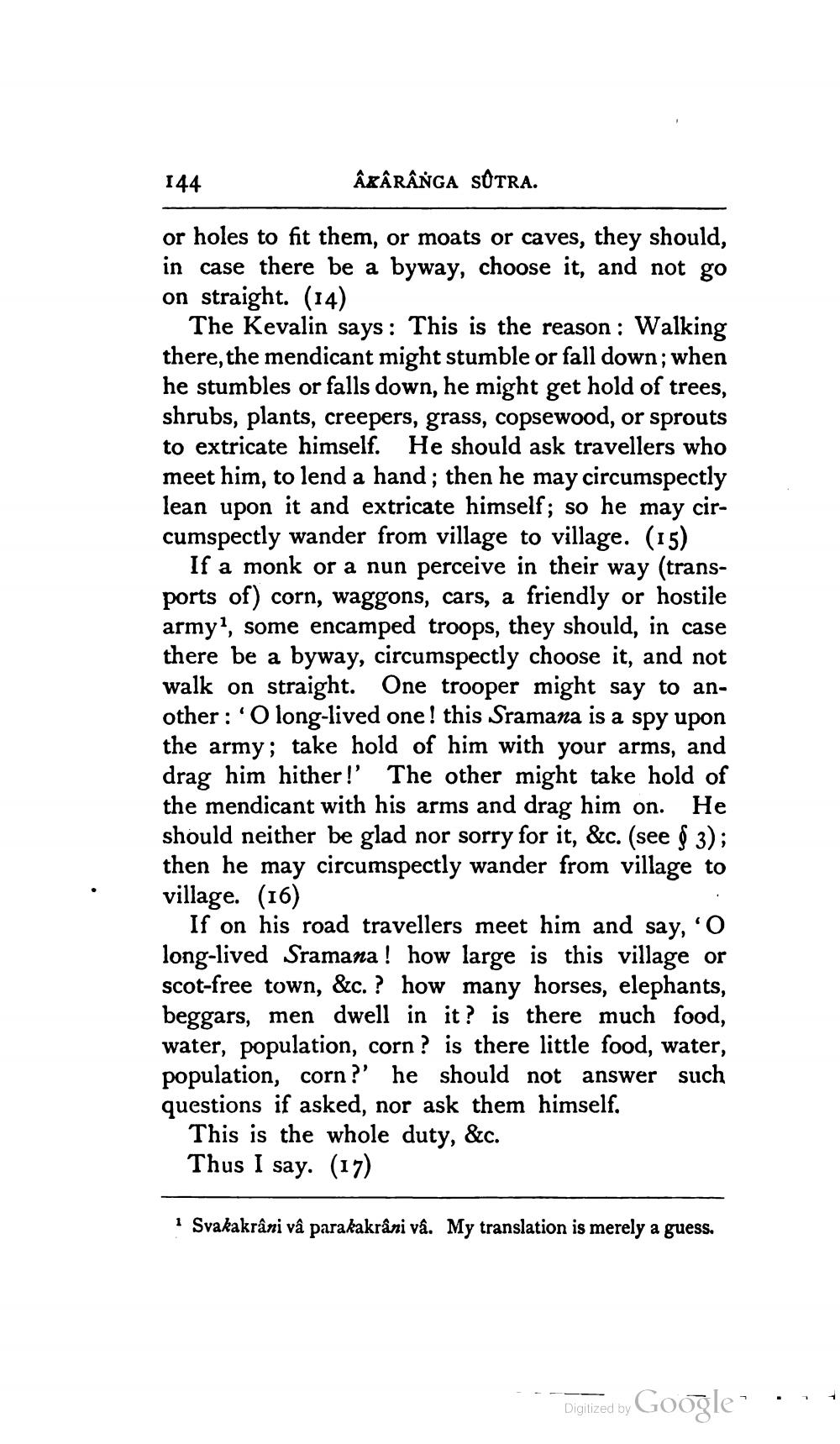________________
144
ÂXÂRÂNGA SUTRA.
or holes to fit them, or moats or caves, they should, in case there be a byway, choose it, and not go on straight. (14)
The Kevalin says: This is the reason: Walking there, the mendicant might stumble or fall down; when he stumbles or falls down, he might get hold of trees, shrubs, plants, creepers, grass, copsewood, or sprouts to extricate himself. He should ask travellers who meet him, to lend a hand; then he may circumspectly lean upon it and extricate himself; so he may circumspectly wander from village to village. (15)
If a monk or a nun perceive in their way (transports of) corn, waggons, cars, a friendly or hostile army!, some encamped troops, they should, in case there be a byway, circumspectly choose it, and not walk on straight. One trooper might say to another: 'O long-lived one! this Sramana is a spy upon the army; take hold of him with your arms, and drag him hither!' The other might take hold of the mendicant with his arms and drag him on. He should neither be glad nor sorry for it, &c. (see § 3); then he may circumspectly wander from village to village. (16)
If on his road travellers meet him and say, 'O long-lived Sramana ! how large is this village or scot-free town, &c. ? how many horses, elephants, beggars, men dwell in it? is there much food, water, population, corn ? is there little food, water, population, corn?' he should not answer such questions if asked, nor ask them himself.
This is the whole duty, &c. Thus I say. (17)
Svakakrâni vâ parakakrâni vå. My translation is merely a guess.
Digitized by Google
+




